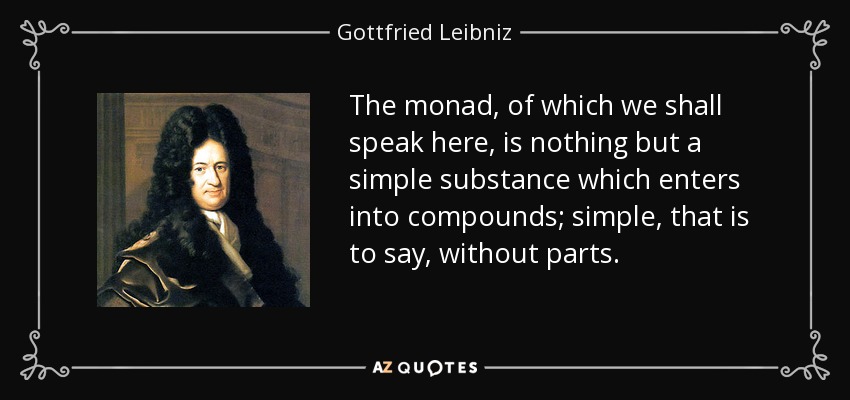By Penny Theodorakopoulou,
In my previous article, we saw thoroughly what Monad means according to G. W. Leibniz, as well as the great influence he had: Aristotle. In the final part of analyzing Monadology, we are going to explain how Leibniz considers God as the primary Monad, or as he calls it “Monad of Monads”.
Having left the reading and analysis to §38, the philosopher proved that God is that substance that needs no further explanation because its existence is sufficient to exist (as we also elaborated on part I of this article series); and because God is this necessary substance mentioned by Leibniz, which is the sufficient reason, states that “there is only one God, and this God is sufficient”.
Having now finished with God’s sufficiency, Leibniz’s God has other characteristics, such as uniqueness, universality, necessity, absoluteness, and infinity, being the supreme substance. Because the Leibnizian God is the supreme substance, there is nothing outside of it that is an independent and simple sequence of potential beings, so Leibniz’s God is without limits and “must contain the most possible reality”.
That being said, Leibniz concludes that God is absolutely perfect (ens perfectissimum). At this point, Leibniz introduces the term perfection, according to which a being whose essence is the combination of all perfections, where perfection is a simple and positive quality; so purely positive, that it contains no limitation at all. Leibniz also argues that the characteristics of all finite states come from limitation, from God’s perfections; therefore, since God is unlimited, perfection is absolutely infinite. The philosopher adds that every perfection of God’s creations has come from him; whereas every imperfection they have do not come from God, but from their own nature, since [creations] cannot be without limits, a feature which is inherent only in the totality of Leibniz’s God.

Continuing his argument about why God is the primary Monad, Leibniz states in §43 that, in addition to being the source of beings, God is also the source of substances, insofar as they are actual or have the potential to exist. He justifies the above proposition by asserting that “the mind of God is the region of eternal truths, or of the ideas on which they depend”.
According to this admission of Leibniz, God knows everything, being as sufficient reason and as ens perfectissimum. Only God can perceive eternal truths and apply them because he is the only substance without which nothing could possibly exist. In order to further support the above view, in the next paragraph of Monadology, he attempts to prove for the second time in his work the existence of God by asserting that the ideas of real substances are actions, i.e. reality. Based on this, God as mind, not only has the possibility to exist (if we want to speak in Aristotelian terms, this possibility is the δυνάμει) but also exists (ἐνεργείᾳ).
Ending with the second proof of God’s existence, at this point, he essentially ends his explanation of why God is the primary Monad, the supreme, necessary substance. So, to summarize, Leibniz’s God is the aforementioned names for the following reasons: he is sufficient to exist, he has no limits, he contains universality, infinity, absoluteness, uniqueness, and necessity, he is the beginning of everything, and the cause of everything, he is ens perfectissimum; he is the source of existence and substance, he is δυνάμει and ἐνεργείᾳ, and it needs no further explanation since he is self-explanatory.
References
- Leibniz’s Monadology, angelfire.com, Available here
- Monad (philosophy), wikipedia.org, Available here
- Monad, britannica.com, Available here
- Gottfried Wilhelm Leibniz, plato.stanford.edu, Available here




